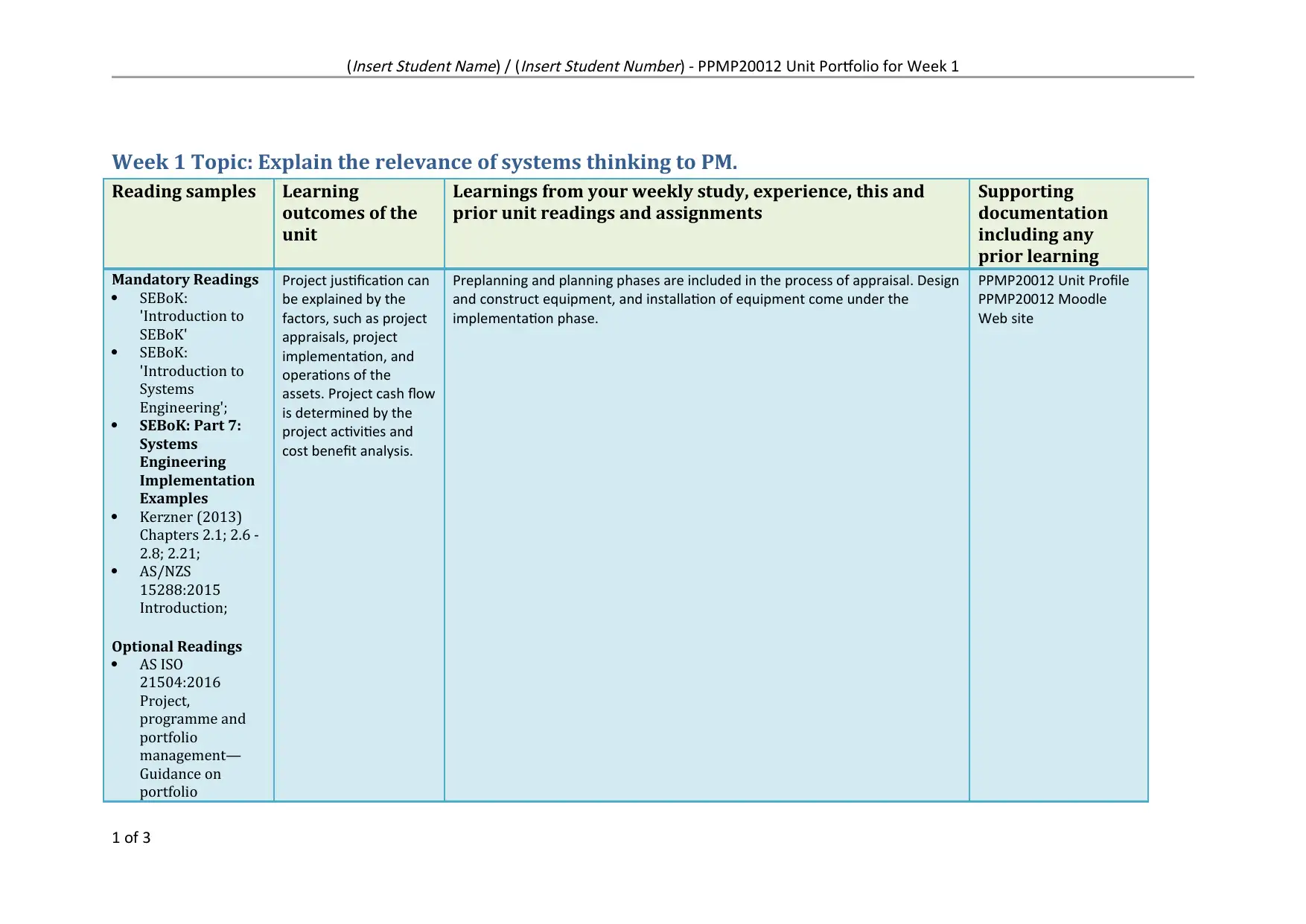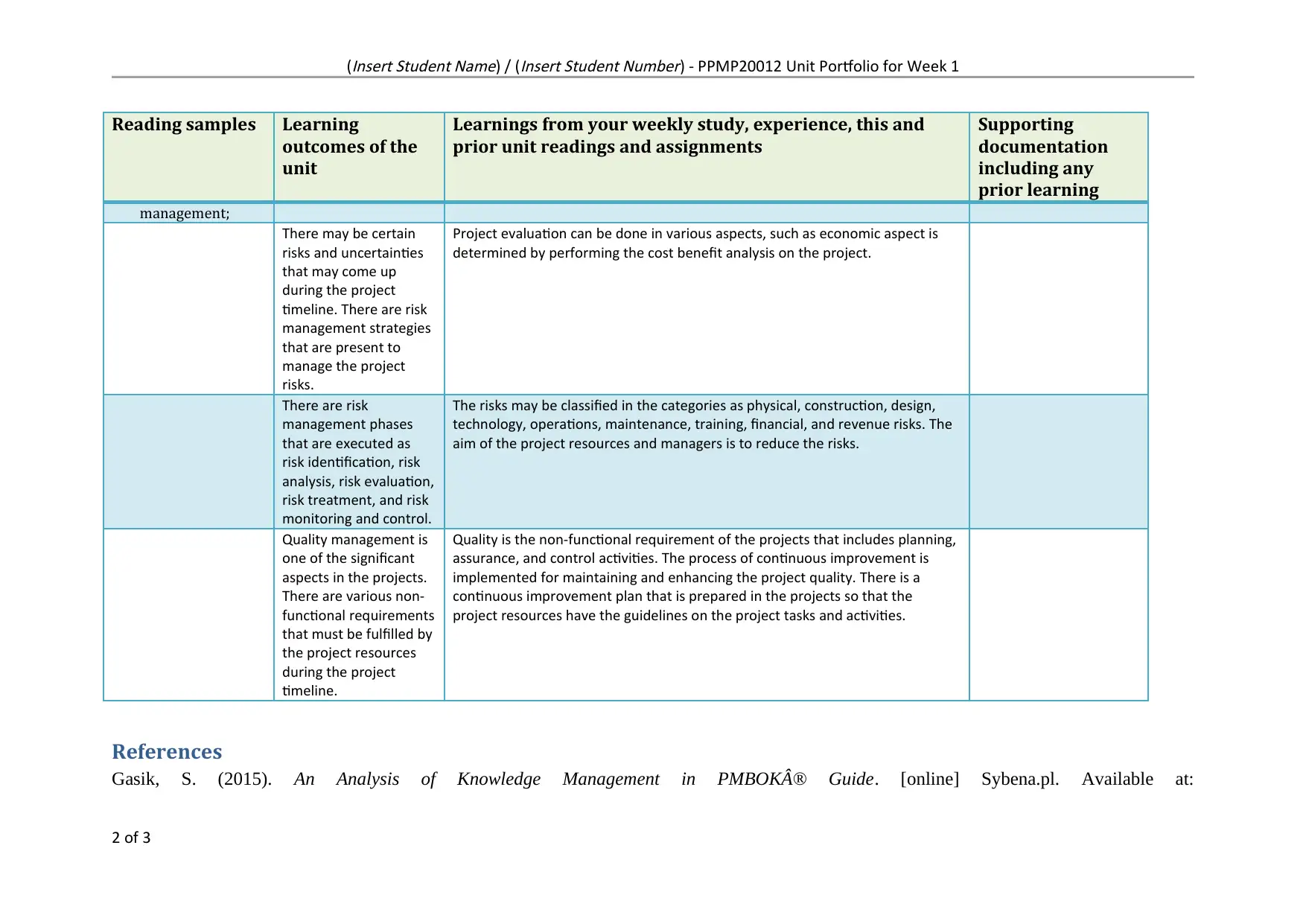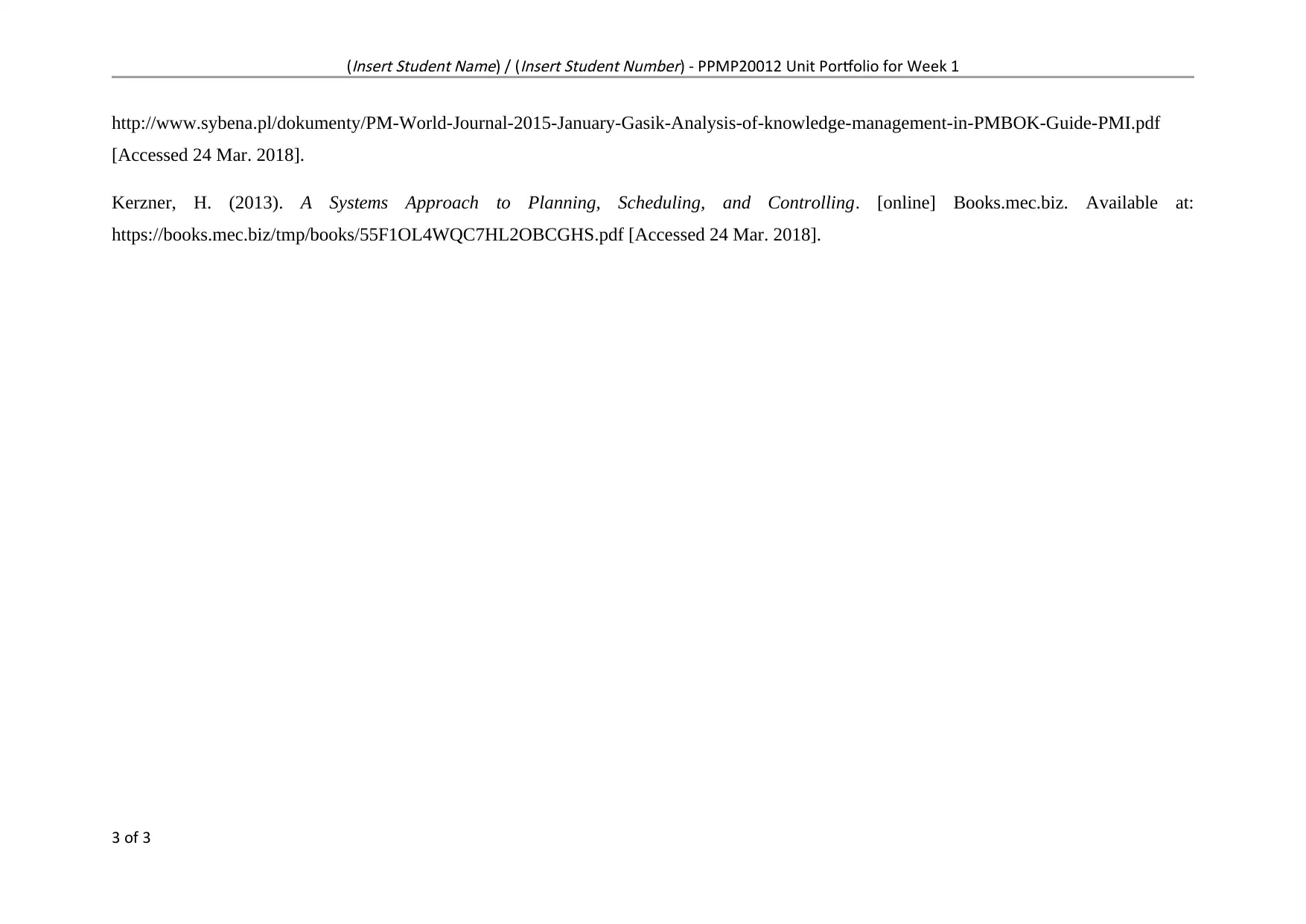PPMP20012 Project Management Principles and Practices Assignment
VerifiedAdded on 2021/04/17
|3
|477
|76
Homework Assignment
AI Summary
This assignment focuses on project management principles, emphasizing the importance of systems thinking. It explores project risks, quality management, planning, and evaluation within the context of PPMP20012. The assignment also delves into the phases of project management, including planning, implementation, and risk management, alongside the significance of quality assurance and continuous improvement. References to specific readings such as Kerzner (2013) and SEBoK materials are made to provide context and support the concepts presented. The assignment also explains the aspects of project management which includes project justification, cost benefit analysis and risk management. The assignment also discusses the importance of quality management and the non-functional requirements.
1 out of 3








![[object Object]](/_next/static/media/star-bottom.7253800d.svg)